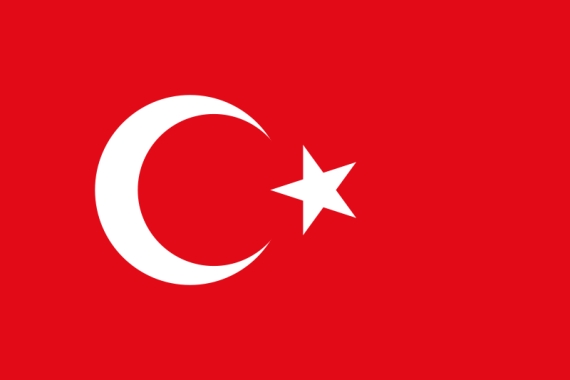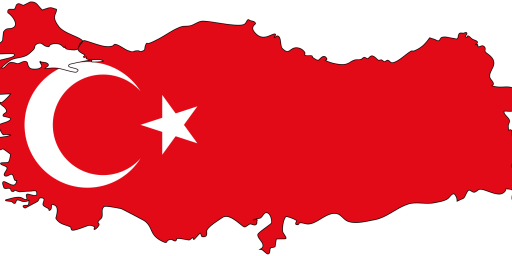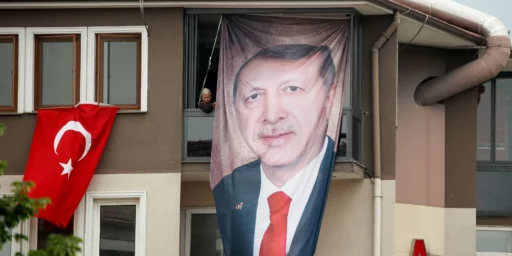Changes in Turkey
By a narrow margin, Turks voted for some significant changes.
 Via the BBC: Turkey referendum: Erdogan wins vote to expand presidential powers
Via the BBC: Turkey referendum: Erdogan wins vote to expand presidential powers
Turkish President Recep Tayyip Erdogan has narrowly won a referendum to expand presidential powers, which could keep him in office until 2029.
With 99.45% of ballots counted, the “Yes” campaign had won 51.37% and “No” 48.63%, and the electoral board called victory for “Yes”.
Erdogan supporters say replacing the parliamentary system with an executive presidency will modernise the country.
One the surface, this is Turkey adopting presidentialism (i.e., separation of powers between the executive and legislative branches) after a brief stint with semi-presidentialism (a system where the head of state is an elected president, but the head of government is the prime minister) and a longer history with parliamentarism. In reality, however, this looks a lot like a power-grab by President Erdogan.
For an excellent run-down of what the reforms will do, see JD Mussel at Fruits and Votes: Turkey referendum: Latin Americanization on the road to autocracy which has a detailed run-down of what will change in the Turkish system of government.
The following is key, especially if one is trying to sort out rhetoric from reality:
According to the BBC, Erdogan claims that the new system will ‘resemble those in France and the US’. There is clearly little truth to this. First of all, France is semi-presidential, specifically the premier-presidential variant. This means that the prime minister, while appointed by the president, can formally only be removed by the assembly – in other words, what Turkey has now. These amendments would outright abolish the prime ministership and parliamentary responsibility, granting the president (already in a position to play a dominant role in the country’s government) absolute control over the executive branch.
Does that mean that the new system will essentially be the same as the US? Not really. Presidential or not, the proposed system includes numerous features bearing little resemblance the American model of checks and balances. The amendments would invest the Turkish president with extensive constitutional decree powers, allow him to all but dictate the budget, but on the other hand leave him with a substantially weaker veto than the US. The absence of assembly confirmation vote for ministers, not to mention presidential dissolution power, are also alien to the US constitution. Overall, the proposed institutional framework is to bear far greater resemblance to past and present constitutions of Latin America, where assembly confirmation is non-existent, emergency and decree powers are common, while some of the other institutions in question have featured occasionally, e.g. presidential dissolution power (Ecuador, formerly Chile and Argentina) and weaker veto (Brazil, formerly Venezuela).
He reaches the following conclusions, with which I concur:
In any case, the proposed amendments represent an immense consolidation of power in the hands of president Erdogan.
[…]
The Venice Commission’s report characterises the proposed changes as “a dangerous step backwards” for democracy in Turkey. It certainly feels hard to disagree.





…for the purpose of a significant return to Islamist theocracy. Or, at least, that’s my guess. Erdogan is personally ambitious, but he’s even more anti-secular. This is an enormous blow to Ataturk’s legacy, in a country that still reveres Ataturk.
This is not the Turkey that was admitted to NATO. That was an authoritarian government which eventually started moving in the right direction. The present government is an authoritarian government moving in the wrong direction.
@Dave Schuler: Pretty much.
51% of Turks voted to destroy democracy; only 46% of American voters did.
@Dave Schuler: BBC: “Turkey RIP”, also “Turkey one step closer to tyranny” (Hot Air).
It will also be of major concern to Germany, who was already into major problems with Turkey. Merkel and other European leaders were looking for the Turkish leader to help stop the flood of terrorists coming in from Syria, Iraq, and ISIS.
@michael reynolds: Half of Americans didn’t vote, so it’s only 23% or thereabouts.
Donald Trump has in the past expressed admiration for Erdogan. The two have a great deal in common psychologically and temperamentally.
@CSK: Turkey has been a strong, usually dependable ally of the US. See: Obama’s Support of Erdogan Is a Stark Reminder of Turkey’s Value to U.S.
(NY Times, 7-20-2016).
I guess Erdogan doesn’t care about Turkey joining the EU…
@Tyrell:
The point is, that may change for the worse.
@An Interested Party:
I guess the EU doesn´t care about this Turkey joining their community. At least that is what I´ve heard in the streets of Germany so far.
Wait until Le Pen gets elected President of France, and DT has to deal simultaneously with Kim Jong Un, Brexit, Putin, Assad, Erdogan, and a hyper-nationalist leading one of our major allies.
@SC_Birdflyte:
I think you mean President Kushner.
Trump called Erdogan to congratulate him.